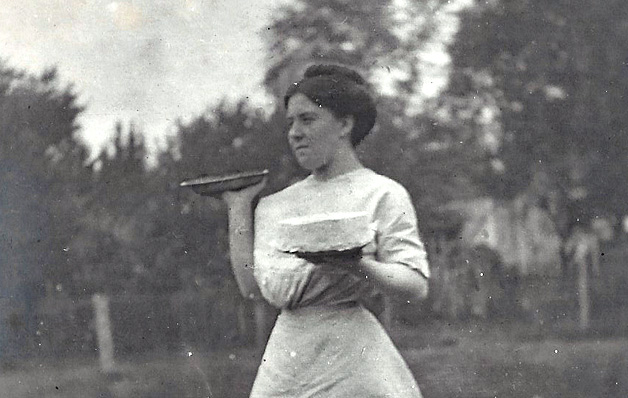It is Pi Day, and Megan McArdle laments the decline of pie. The problem, she says, is that pie crust is too labor-intensive for commercial bakeries to do right:
Unfortunately, good pie crust is also hard to do at home. It relies less on ruthless attention to the recipe than on technique….learn the feel…mess around with it a bunch yourself…humidity and temperature…amount of moisture in your fruit.
….You may think that I am myself making the case against pie. Far from it! Pie is not a dessert well suited to our modern era, but that is our loss, not pie’s. Its very difficulty and imperfections of form are part of its charm. They remind us that appearance is not everything, and that some of the most worthwhile things in life can only be attained through our own hard work.
Hmmm. Here is my Aunt Mary,1 circa 1910 or so, with a pie and a cake used in the wooing of her future husband:

Aunt Mary had a different take on pie crust: it’s all in the shortening, and it better be lard. Crisco will never make a good pie crust, no matter how good your technique.
There’s probably something to both of these points of view, and they arrive at the same place anyway: pie is not well suited to our modern era. We’re too lazy to do it right and we’ve developed a phobia verging on hysteria of using animal fat in our food. This has ruined both pie and french fries, much to our collective loss. Plus there’s a case to be made that all this vegetable oil is killing us.
But ignore all that. It’s Pi Day! Thumb your nose at the naysayers and go have a piece of pie.
1Actually my great aunt, but who’s counting?















